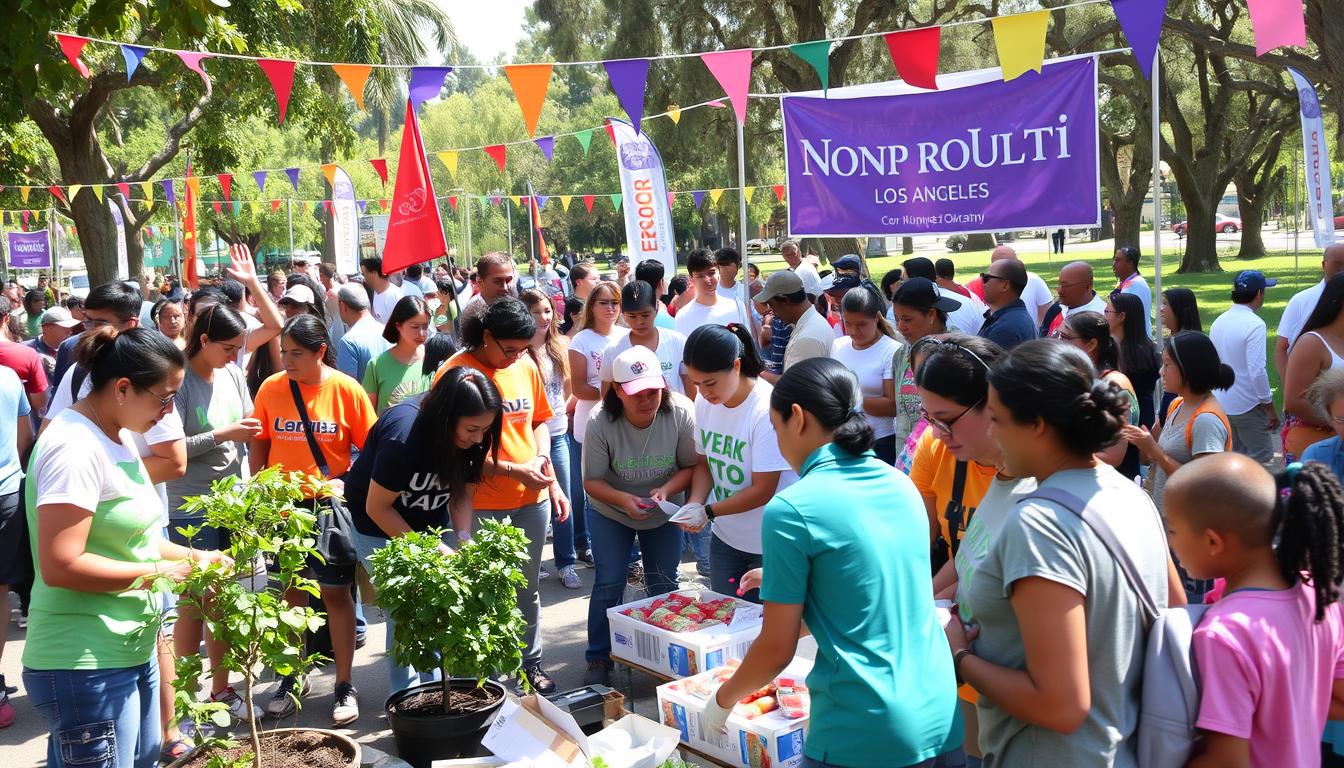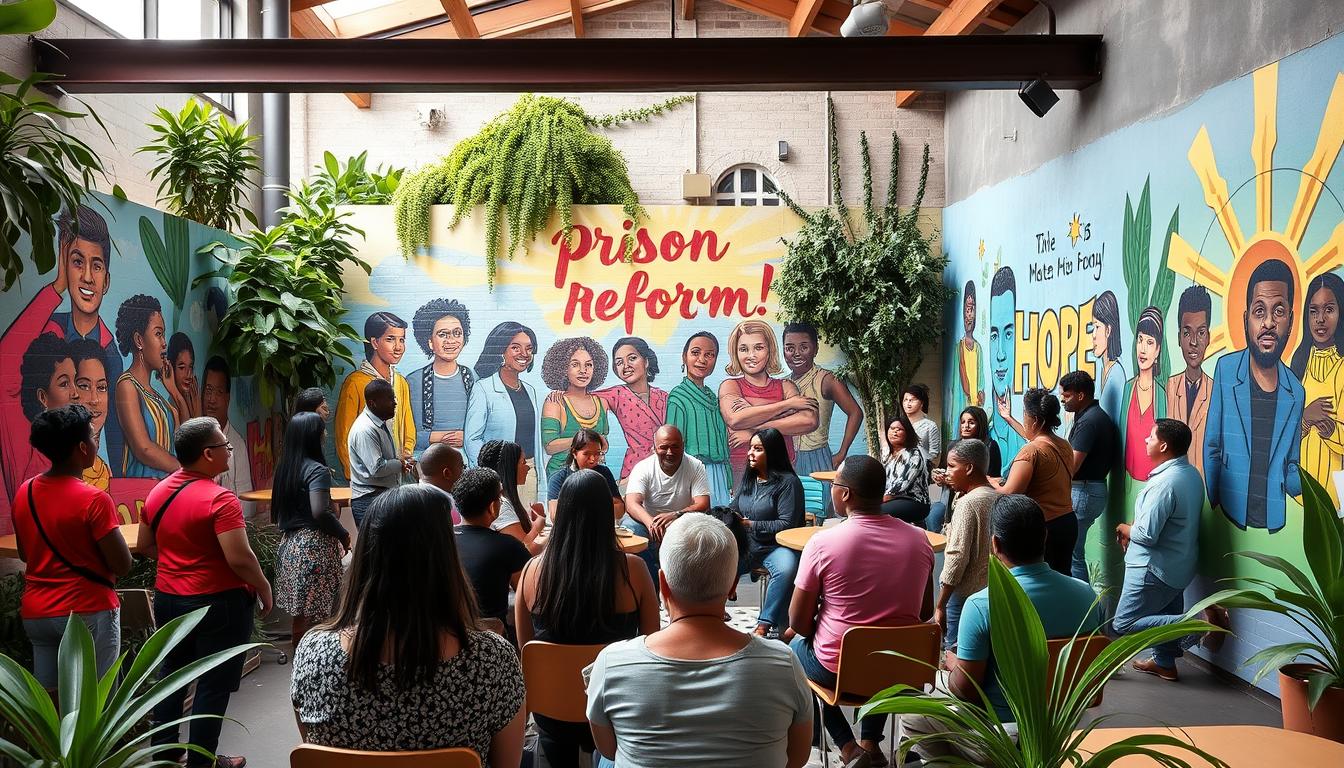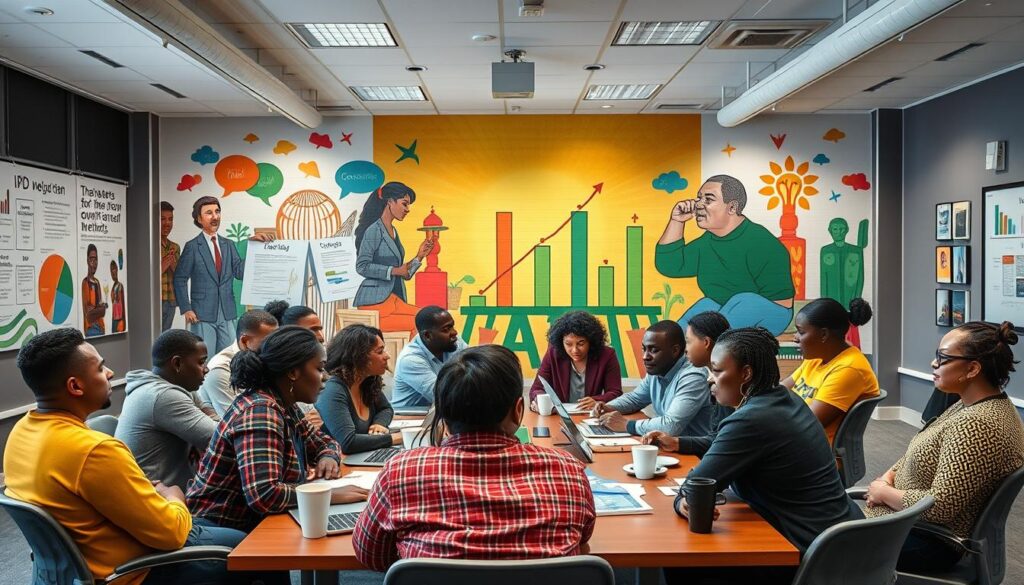In California, nonprofits can avoid paying property taxes. This lets them use more money for helping the community. In places like Los Angeles, nonprofits are key in solving social problems.
It's important to know why nonprofits don't pay taxes. This helps them do more good in the community. We'll explore how tax breaks help nonprofits in Los Angeles do their work better.
Key Takeaways
- Nonprofit organizations may qualify for specific tax exemptions that are vital for their operations.
- In California, nonprofits under 501(c)(3) can receive property tax exemptions through the Welfare Exemption program.
- Tax-exempt status aids nonprofits in allocating funds towards mission-related activities rather than tax obligations.
- Organizations seeking federal tax-exempt recognition must adhere to detailed IRS procedures.
- Ongoing compliance with state filing requirements is crucial for maintaining tax-exempt status.
- The unique nature of nonprofits in California necessitates understanding differing tax treatments for various types of organizations.
Understanding Nonprofit Status
Starting a nonprofit in Los Angeles means knowing the rules and types of nonprofits. These groups aim to help others, teach, or conduct scientific research. They don't make money for themselves but use it to help others.
This setup helps get the community involved, especially with black owned non-profits.
Definition of Nonprofits
Nonprofits are groups that don't aim to make a profit. They do things that help the community. There are different kinds, like public benefit and mutual benefit groups.
In Los Angeles, many people like to help out or support these groups. They want to make a difference and help others.
Nonprofit vs. Tax-Exempt Status
All tax-exempt groups are nonprofits, but not all nonprofits are tax-exempt. Getting tax-exempt status means not paying federal income taxes. It's a big help for these groups.
To get tax-exempt, groups must apply and meet certain rules. This can cost money, like a $600 fee for Form 1023. It's important to follow the rules to keep these benefits.
For more help, check out our guide on starting a nonprofit in California.
What Does Tax Exemption Mean?
Understanding tax exemption is key for those working with nonprofits in Los Angeles. Tax exemption means a nonprofit doesn't have to pay federal corporate income tax on income related to its mission. This lets nonprofits in Los Angeles use more resources for their missions, not just taxes.
Tax Exemptions Explained
Being tax-exempt is a big deal. It means nonprofits don't have to pay income taxes on income related to their mission. But, they still have to deal with other taxes like payroll and unrelated business income taxes. Nonprofits in California must make sure they follow both state and federal rules.
It's also important to remember that even tax-exempt nonprofits must file annual tax returns with the IRS.
- Nonprofits with unrelated businesses may have to pay unrelated business income tax.
- Most nonprofits in California must follow sales tax rules, even if they're exempt in some cases.
- Nonprofits with employees must pay employment taxes, including Social Security and Medicare taxes.
Common Misconceptions about Tax Exemption
Many think all nonprofits are automatically tax-exempt. But, this isn't true. Organizations must go through specific steps to get tax-exempt status and meet certain criteria. Only certain tax-exempt groups can accept tax-deductible donations, like 501(c)(3) public charities.
To learn more, check out resources from experts in nonprofit formation, such as Spiegel & Utrera, P.A..
Key Requirements for Tax-Exempt Status
To get IRS tax exemption, it's key to know what's needed. Nonprofits in Los Angeles must be for charity, education, or religion. The IRS has clear rules to follow for this status.
Criteria for Qualifying as Tax-Exempt
To qualify, an organization must meet certain criteria. These include:
- Being organized for charity, education, or religion.
- Following Internal Revenue Code Section 501(c) rules.
- Having varied funding sources, not just one.
- Being transparent with regular filings.
- Meeting state laws, like California Franchise Tax Board tax exemption.
Not following these rules can lead to big problems. Nonprofits might lose their tax-exempt status. Regular audits help keep them in line.
IRS Application Process
Getting IRS tax exemption can seem hard. We start with an Employer Identification Number from IRS Form SS-4. Then, we fill out IRS Form 1023 for 501(c)(3) status.
It's crucial to apply on time and follow IRS and California rules. Not filing the RRF-1 on time can harm our status and donations. For more on forming nonprofits, see the complete guide on forming nonprofit organizations.
Los Angeles Nonprofit Organizations
Nonprofit groups in Los Angeles make a big difference in our community. They help with many causes thanks to their tax-exempt status. This lets them use more resources to help people.
Impact of Tax Exemption in Los Angeles
Having tax-exempt nonprofits in LA is a big plus for everyone. They work on issues like education, health, and fighting poverty. This means they can spend more on helping the community.
- Support for youth development through education and technology initiatives
- Economic empowerment for marginalized communities
- Environmental sustainability programs aimed at conservation
- Addressing health disparities within the region
Groups like LA Voice tackle big problems like jobs, schools, health, and homes. They show how different efforts can lead to real change. A Better LA also focuses on gangs and improving city life, showing they really listen to what the community needs.
Examples of Local Nonprofits
Looking at nonprofits in LA, we see many making a difference. Here are a few:
- GiveLove: Works on health, jobs, and the environment.
- Grameen America: Helps with jobs and women's rights.
- Inner-City Arts: Supports arts for kids at risk.
- Heal the Bay: Fights for clean beaches.
In Los Angeles, there are over 72,000 nonprofits working hard. They aim to fight poverty, help those in need, and bring about big changes. Together, they bring in over $128 billion a year, showing how important they are. To learn more, check out this link.
Benefits of Tax Exemptions for Nonprofits
Nonprofits in Los Angeles get big perks from tax exemptions. They save money that would go to taxes. This means they can grow and help more people.
Financial Advantages
One key benefit is lower taxes. This includes property and sales tax. Nonprofits might not have to pay local property taxes in some cases.
In California, they pay less in federal and state taxes. This means they can spend more on things like office supplies and food.
Donors get a tax break for giving to nonprofits. This can lead to bigger donations. Nonprofits can help donors get the most from their donations.
Enhanced Fundraising Opportunities
Being tax-exempt makes nonprofits more credible. This helps them get more donations from people and companies. They can also get grants from foundations and the government.
Nonprofits also save money on mail. This is a big help for their fundraising efforts. It lets them spend more on promoting their campaigns.
To learn more about tax exemptions for nonprofits, check out these resources.
Tax Obligations of Nonprofits
As a nonprofit in Los Angeles, we must know we still have tax duties. These duties help us follow federal and state laws. They let us keep our focus on our mission. It's crucial to understand these taxes for our work and future.
Taxes Still Applicable to Nonprofits
Nonprofits in California face sales and use tax on their deals. This includes items sold at fundraisers, tickets, and food. While some activities might be exempt, California doesn't give wide exemptions. Here are some important tax facts:
- We usually need a seller's permit for sales, even if they're not taxed.
- Any organization with over $50,000 in sales must file an Exempt Organization Annual Information Return (FTB Form 199).
- We must file one of three annual federal forms with the IRS: Form 990, Form 990-EZ, or Form 990-N.
Understanding Unrelated Business Income (UBI)
Unrelated Business Income (UBI) is income from activities not part of our mission. For example, if we do business unrelated to our main goal, we might earn UBI. If we make over $1,000 from UBI, we must file an Exempt Organization Business Income Tax Return (FTB Form 109). It's key to track these incomes to follow IRS rules and keep our tax-exempt status.

The Role of Nonprofits in Community Development
Nonprofits are key in improving communities. They tackle local issues and make life better for people. In Los Angeles, nonprofits make a big difference.
Community-Based Nonprofits
These nonprofits deal with big issues like education and health. For example, EveryoneOn teaches people how to use computers. This is important for jobs today.
Explore Ecology in Santa Barbara teaches kids about nature. They learn through fun programs. This helps kids grow up caring about the environment.
Empowering Local Communities
Many nonprofits aim to empower people. Kiva gives loans and training to help entrepreneurs. This helps grow the economy in poor areas.
The Grameen Foundation teaches women skills for starting businesses. This helps them become financially independent. These efforts show how nonprofits help communities grow stronger.
Programs like The Community Foundation for Greater Atlanta train leaders. They help people get involved in their communities. The Los Angeles Community Action Network helps people speak out against unfairness. These actions show how nonprofits empower communities.
Maintaining Tax-Exempt Status
To keep our tax-exempt status, we must follow certain rules. We need to file annual reports like Form 990. This is key for staying in line with nonprofit rules. Also, we must stick to our charitable goals to avoid losing our status.
Compliance and Regulatory Requirements
We must watch out for federal and state rules. In California, nonprofits need to register with the Secretary of State and file documents. Not doing this can lead to big problems: we could lose our tax-exempt status.
Important things to remember include:
- On time filing of Form 990 or Form 990-N, based on our income.
- Following state filing rules to avoid penalties and keep public trust.
- Keeping up with governance documents as the IRS requires.
Risks of Losing Tax Exempt Status
Not following rules can cause big problems. We might not be able to get donations or do important work. Donors might not get tax breaks for their gifts.
Checking our status with the Secretary of State is key. An "Active" status means we're good. But "SOS Suspended" or "FTB Suspended" means we need to fix issues fast.
Knowing these rules is vital for our nonprofit's future. For more info on keeping tax-exempt status, we need to review our actions closely.
Support for Black-Owned Nonprofits in Los Angeles
In Los Angeles, black-owned nonprofits are key to community strength. They tackle unique challenges and offer vital services. Organizations like the Liberty Hill Foundation and the Children's Defense Fund fight against racism and poverty.
These nonprofits focus on specific issues affecting local communities. The Los Angeles Black Worker Center works to lower Black unemployment. The Urban Peace Institute focuses on safety and criminal justice reform. These efforts show why supporting these groups is crucial.
Groups like the ACCE Institute and Black Women for Wellness promote civic engagement and health education. Their work shows the wide range of black-owned nonprofits. It helps improve social equity in Los Angeles.
More visibility and funding are needed for these nonprofits to grow. By supporting them, we can make a bigger difference. It's our duty to help them thrive and serve our communities well.
Challenges Faced by Nonprofits
Nonprofits face many challenges in their work. Funding is a big issue, as they often rely on donations and grants. Economic changes can make it hard to get the money they need, affecting their services and stability.
Our community is always changing, and so are the rules for nonprofits. They must stay alert and manage these changes well.
Funding and Resource Allocation
In Los Angeles, nonprofits are under a lot of pressure. A report showed that 86% of them saw more people needing their help. This led 67% to grow their services.
But, funding is still a big problem. Many nonprofits struggle to cover their costs. In fact, 78% worry about keeping enough money to keep going long-term.
Regulatory Changes Affecting Nonprofits
Rules for nonprofits keep changing, making it hard to meet community needs. They must stay up-to-date and flexible to comply. Many talk about diversity and inclusion, but only 57% have clear policies.
This shows the big challenges nonprofits face in a changing world. They try to match their missions with new rules and community hopes. For more on this, check out NFF's survey.
The Future of Nonprofits in Los Angeles
The future of nonprofits in Los Angeles is exciting. New trends in management and community engagement are emerging. These trends focus on using technology and teamwork to help local communities more effectively.
The California Community Foundation has been a leader for over a century. It has worked with donors and partners to tackle big challenges. This has improved life for many people in the area.
Trends in Nonprofit Management
Nonprofits in Los Angeles are embracing digital fundraising and social media. Homeboy Industries is a great example. It uses technology to support its mission and get people involved in civic activities.
Platforms like LA Counts give us important data. This helps us make better decisions and allocate funds. It also helps us meet the needs of our communities and advocate for our causes.
Innovations in Community Engagement
Engagement methods are changing too. Groups like the Coalition for Humane Immigrant Rights and LA Voice are working hard. They spread non-partisan voter information and empower people to shape their communities.
By using new ways to engage, we're not just getting more people involved. We're also helping people feel like they belong in Los Angeles. As we adapt to these changes, our collective strength will be key to tackling big challenges.


